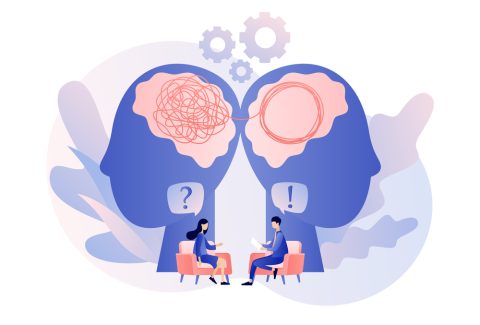The Role of Motivation in Behavioral Change

The Role of Motivation in Behavioral Change
Behavioral change is a complex process that involves altering long-standing habits and adopting new patterns of behavior.[1] At the heart of this transformation lies motivation—a key driver that influences whether an individual will initiate and sustain changes in their behavior. Understanding the role of motivation in behavioral change is essential[2] for mental health professionals, educators, and anyone involved in promoting healthier lifestyles. This article explores the different types of motivation, the factors influencing it, and strategies to enhance motivation for effective behavior change.
Understanding Motivation
Motivation can be broadly defined as the internal or external force that drives individuals to take action toward achieving a goal. It plays a crucial role in behavioral change by influencing the decision to initiate change, the persistence in maintaining new behaviors, and the overall success of the change process.[3]
Motivation is typically categorized into two types:
- Intrinsic Motivation[4]: This type of motivation arises from within the individual. It is driven by personal satisfaction, enjoyment, or a sense of accomplishment associated with the behavior itself. For example, someone who exercises because they enjoy it or find it fulfilling is intrinsically motivated. Research has shown that intrinsic motivation is often more sustainable and leads to longer-lasting behavior change.
- Extrinsic Motivation: This motivation is influenced by external factors, such as rewards, recognition, or social approval. For instance, an individual may start a weight loss program to fit into a specific dress size or to receive praise from friends. While extrinsic motivation can effectively initiate change, it may not be as durable as intrinsic motivation once the external rewards are removed.[5]
Factors Influencing Motivation
Several factors can influence an individual’s motivation to change behavior:
- Personal Values and Beliefs: An individual’s values[6] and beliefs significantly impact their motivation. For example, someone who values health and wellness is more likely to engage in behaviors that promote these values. Similarly, beliefs about the effectiveness of a particular behavior change can influence motivation. If individuals believe that quitting smoking will improve their quality of life, they are more likely to be motivated to quit.
- Self-Efficacy: Self-efficacy refers to an individual’s belief in their ability to successfully perform a behavior.[7] Higher levels of self-efficacy are associated with greater motivation and a higher likelihood of achieving behavioral change. Strategies that enhance self-efficacy, such as setting achievable goals and providing positive feedback, can significantly boost motivation.
- Social Support: The presence of supportive relationships can enhance motivation for behavior change. Encouragement from friends, family, or support groups can create a sense of accountability and foster motivation.[8] Social connections can also provide resources and information that facilitate change.
- Environmental Factors: The environment can either hinder or facilitate motivation. Access to resources, social norms, and environmental cues play a crucial role in shaping behavior. For example, a person living in a neighborhood with limited access to healthy food options may find it challenging to adopt a healthy diet, impacting their motivation to do so.
- Past Experiences: Previous experiences with behavior change can influence motivation. Success in making a change can boost confidence and motivation, while past failures may lead to feelings of discouragement. Understanding and addressing these experiences is essential for fostering a positive motivation toward change.
Strategies to Enhance Motivation for Behavioral Change
- Set Clear and Achievable Goals: Goal-setting is a powerful tool for enhancing motivation.[9] Setting specific, measurable, achievable, relevant, and time-bound (SMART) goals can help individuals focus their efforts and track their progress. Breaking larger goals into smaller, manageable steps can also create a sense of accomplishment that fuels motivation.
- Foster Intrinsic Motivation: Encourage individuals to find personal meaning and enjoyment in the behavior change process. This can involve exploring the reasons behind the desire for change and identifying intrinsic rewards, such as improved health, increased energy, or a sense of empowerment.
- Enhance Self-Efficacy: Building self-efficacy through skill development, positive reinforcement, and modeling can significantly enhance motivation. Providing individuals with the tools and strategies needed to succeed can instill confidence in their ability to change.
- Create Supportive Environments: Facilitate social support by encouraging connections with others who share similar goals. Support groups, buddy systems, or community programs can provide encouragement, accountability, and valuable resources.
- Utilize Motivational Interviewing: This client-centered counseling approach can help individuals explore their motivations for change, identify ambivalence, and enhance their commitment to behavior change. Motivational interviewing emphasizes active listening, empathy, and collaboration, fostering a supportive environment for exploration and growth.
- Celebrate Progress: Acknowledging and celebrating small victories along the way can reinforce motivation and encourage continued effort. Recognizing achievements—no matter how small—can boost confidence and create a positive feedback loop that propels individuals toward their goals.
Conclusion
Motivation is a critical element in the process of behavioral change. By understanding the types of motivation, the factors that influence it, and the strategies to enhance it, practitioners can effectively support individuals in their journey toward healthier behaviors. As we recognize the importance of motivation, we can empower individuals to take charge of their lives, fostering lasting changes that lead to improved health and well-being. By cultivating intrinsic motivation, enhancing self-efficacy, and providing supportive environments, we can help individuals overcome obstacles and achieve their goals, ultimately transforming their lives for the better.
[1] Bouton, Mark E. “Why behavior change is difficult to sustain.” Preventive medicine 68 (2014): 29-36.
[2] Rodgers, Wendy M., and Christina C. Loitz. “The role of motivation in behavior change: how do we encourage our clients to be active?.” ACSM’s Health & Fitness Journal 13.1 (2009): 7-12.
[3] Reeve, Johnmarshall. Understanding motivation and emotion. John Wiley & Sons, 2024.
[4] Fishbach, Ayelet, and Kaitlin Woolley. “The structure of intrinsic motivation.” Annual Review of Organizational Psychology and Organizational Behavior 9.1 (2022): 339-363
[5] Morris, Laurel S., et al. “On what motivates us: a detailed review of intrinsic v. extrinsic motivation.” Psychological medicine 52.10 (2022): 1801-1816.
[6] Li, Mimi, and Liping A. Cai. “The effects of personal values on travel motivation and behavioral intention.” Journal of travel research 51.4 (2012): 473-487.
[7] Jinks, Jerry, and Anthony Lorsbach. “Introduction: Motivation and self-efficacy belief.” Reading &Writing Quarterly 19.2 (2003): 113-118.
[8] Tezci, Erdogan, et al. “A study on social support and motivation.” The Anthropologist 22.2 (2015): 284-292.
[9] Gómez-Miñambres, Joaquín. “Motivation through goal setting.” Journal of Economic Psychology 33.6 (2012): 1223-1239.






